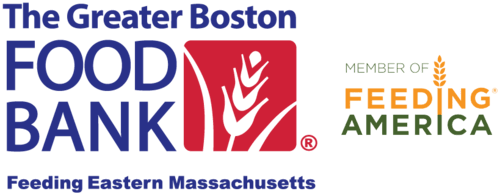The Greater Boston Food Bank’s Statement on the Latest Bipartisan Agreement for Emergency COVID Relief
The Greater Boston Food Bank’s Statement on the Latest Bipartisan Agreement for Emergency COVID Relief
December 22, 2020—Right now, nearly a million people across the Commonwealth are choosing between putting food on the table and paying bills, like rent and utilities. The Greater Boston Food Bank (GBFB) is New England’s largest hunger-relief non-profit organization, but food banks and their emergency hunger-relief networks cannot meet the need for emergency food assistance on their own. As our community continues to weather a once-in-a-generation public health and economic emergency, the bipartisan agreement is an important down payment to help provide the food assistance our neighbors need, but further action will also be necessary in the coming months.
We are deeply relieved that the bipartisan COVID relief deal includes an increase in benefits under the Supplemental Nutrition Assistance Program (SNAP), as well as additional funding to food banks to continue to support the increased need we are seeing every day. GBFB and our network of nearly 600 partner food pantries and meal programs continue to help fill the meal gap left by lost wages and record-breaking grocery prices, although we know we cannot do this work alone.
The relief package boosts the SNAP maximum benefit by 15 percent for six months (through June 30, 2021), expands SNAP benefits and eligibility for some unemployed individuals and college students, provides administrative funds to states to keep SNAP benefits flowing to needy households, and provides a foundation on which the next Congress and administration must build. SNAP is our nation’s best anti-hunger tool, and we strongly support the legislation’s increase in benefits. SNAP provides a scalable solution: for every meal provided by the emergency food system in MA, SNAP provides five. During the last recession, for every dollar spent on the SNAP program, $1.70 was generated in the economy.
The bill includes additional critical investments in federal nutrition programs that we support, including important funding for territories and the expansion of online SNAP benefits. We also support the expansion of Pandemic EBT (P-EBT) to children under six deemed to be “enrolled” in childcare programs. The P-EBT program has been an essential resource in our state in ensuring children are able to receive nutrition during out-of-school times and GBFB commends our Massachusetts Department of Transitional Assistance for making Massachusetts the first state in the nation last week to receive federal approval to send Pandemic EBT benefits through the end of the school year. We are also pleased to see investments in senior nutrition, WIC, and school nutrition programs.
Finally, we support the bill’s inclusion of $400 million for The Emergency Food Assistance Program (TEFAP) — a critical source of food for our food bank.
The bill was signed into law on December 27, and we are encouraged that the relief package included an additional $1.5 billion for the Farmers to Families Food Box program, which will assist in filling food supply gaps for both food banks and partner organizations.*
The bipartisan legislation will provide much-needed short-term relief, but we remain concerned that the economic crisis and increased need will continue beyond the six months of funding provided in this bill. GBFB is committed to working with the new Congress and the next administration on a longer-term and more robust package in the new year to provide the full range of economic relief necessary to alleviate the hardship faced by millions of households.
As 2020 ends, we know the need for food assistance will continue. While this legislation is a welcome step forward, the government will need to take further action to ensure that our neighbors do not slip further into crisis in the coming months. We strongly support the nutrition provisions in this bill and believe they are a critical step toward ensuring people have the food they need to learn, succeed, and thrive. Together, we will end hunger here.
*Updated on 01/06/2021
